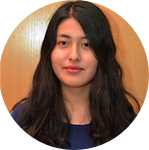About This Project
The Michigan Synthetic Biology Team is excited to be building Aptapaper, a device used to detect proteins on a simple piece of paper. We will freeze dry gene networks onto simple pieces of filter paper, to create a quick and inexpensive method of protein detection, using the targeting specificity of aptamers.
Ask the Scientists
Join The DiscussionWhat is the context of this research?
In recent publications, scientists demonstrated that transcription and translation can occur on pieces of paper! Using synthetic DNA circuits that were freeze dried on paper, researchers created genetic "switches" that emit certain signals. In the default off stage, no signal is exhibited. When the switch is turned on by a specific RNA trigger, the switch produces a protein output. These paper-based switches can be stored at room temperature for up to a year with no significant loss of function and can be produced for less than $1 USD/paper! Inspired by these advances, our project aims to put this technology to work, by developing a paper-based system to detect any protein, and therefore diagnosis a multitude of diseases.
What is the significance of this project?
Diagnosing tropical diseases and testing for pathogens requires expensive lab equipment, trained technicians operating equipment, and time. Such diseases are often endemic in areas of the world where these resources are not available. If successful, we will be able to replace these complex processes with a small piece of filter paper. The device that we are proposing, Aptapaper, is a gene circuit on a simple piece of paper that can be used to detect specific disease proteins.
What are the goals of the project?
Transcription and translation have been shown to occur on paper and freeze dried gene circuits are reconstituted with water. While this is an exciting development, it is much more practical to detect diseases via proteins specific to the disease, rather than RNA or DNA. Our project uses a DNA aptamer to sense the protein, and then trigger an RNA toehold switch, all on paper. We plan to harness this system to produce a protein visible to the naked eye, upon addition of a protein secreted by the pathogen. The same setup can be applied to any protein, thus making a detection system that will work for a multitude of diseases.
Budget
As a completely student driven research team, we rely on the generous contributions from the scientific community to fund ALL of our research. These donations come from various departments at the University of Michigan, the University of Michigan's Central Student Government, various corporations, and from fundraising opportunities like this!
Your contribution through this site will go towards much needed laboratory supplies. The custom DNA synthesis is the backbone of our project; it is the genetic material we will freeze dry to paper! The expression kits are needed to test whether our system works by! We need to show that expression will occur, not in cells, but on paper! The things we need include reagents, gloves, and other laboratory supplies.
In total, costs of this research experience are quite high, especially for undergraduate students. For this reason, we need your help to complete our project and show the world what Aptapaper can do!
Meet the Team
Team Bio
Jennifer Knister: Jenn is a senior, studying Cell & Molecular Biology and Biomedical Engineering. This is her second year on the team and she works as Principal Investigator/Project Lead. Inspired to make use of paper-based gene networks, she hopes one day Aptapaper will save lives.
Cristina Michelle Castillo: Cristina is a rising senior majoring in Cell & Molecular Biology and Biomedical Engineering at the University of Michigan. This year she is the President of the team and it's her third year participating in an iGEM team.
Jeremy Kuo: In his fifth year of at the University of Michigan, studying both Microbiology and Music, Jeremy currently serves as the CFO for the Michigan Synthetic Biology team. After his undergraduate studies, he plans on pursuing a graduate degree in public health.
Christine Hathaway: Christine is a rising junior from Bangkok, Thailand, studying Materials Science and Engineering. In her second year on the Synthetic Biology Team, she serves as the lab manager.
Follow us on Twitter: @Michigan_iGEM
Like us on Facebook: Michigan Synthetic Biology Team
Cristina Castillo
Cristina Castillo is a recent graduate from the University of Michigan in Cell and Molecular Biology. She has been part of MSBT for three years now and is currently an advisor for the team. She is also a research assistant in a physiology lab on campus. She studies the effects of hypoxia in cancer. She plan to continue my career as a scientist doing an MD/PhD program.
Lab Notes
Nothing posted yet.
Additional Information
At the end of the summer, we will take our research to the International Genetically Engineered Machine (iGEM) competition in Boston, Massachusetts. At this competition/conference, synthetic biologists from around the world present their findings and research to advance the knowledge in this field as well as to gain recognition for all their hard work. In previous years, our team has been quite successful in presenting our research and we are excited to do it again this year, but we need your help to complete our project to take it to Boston! Learn more about iGEM here.
Project Backers
- 37Backers
- 109%Funded
- $2,189Total Donations
- $59.16Average Donation



